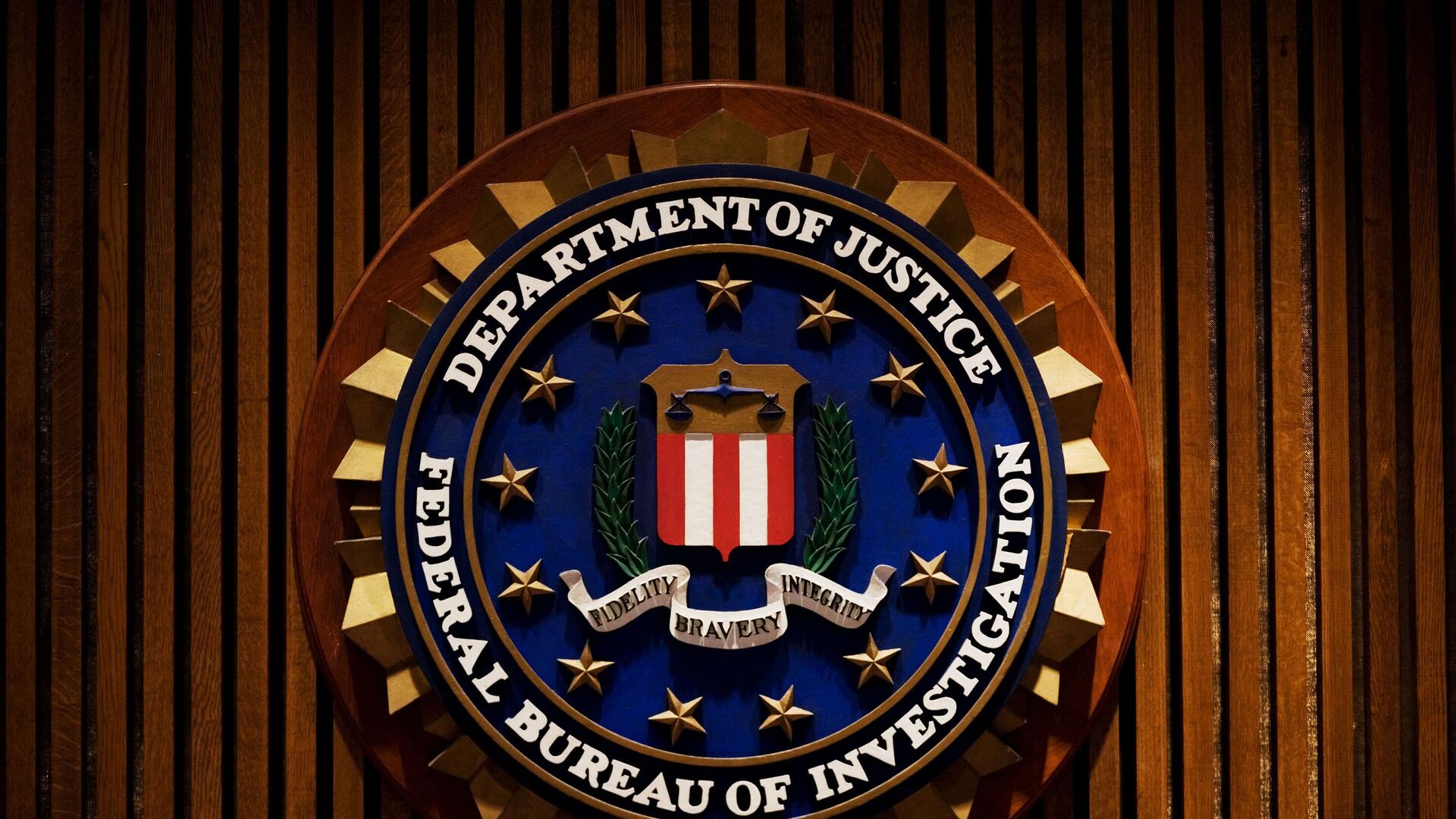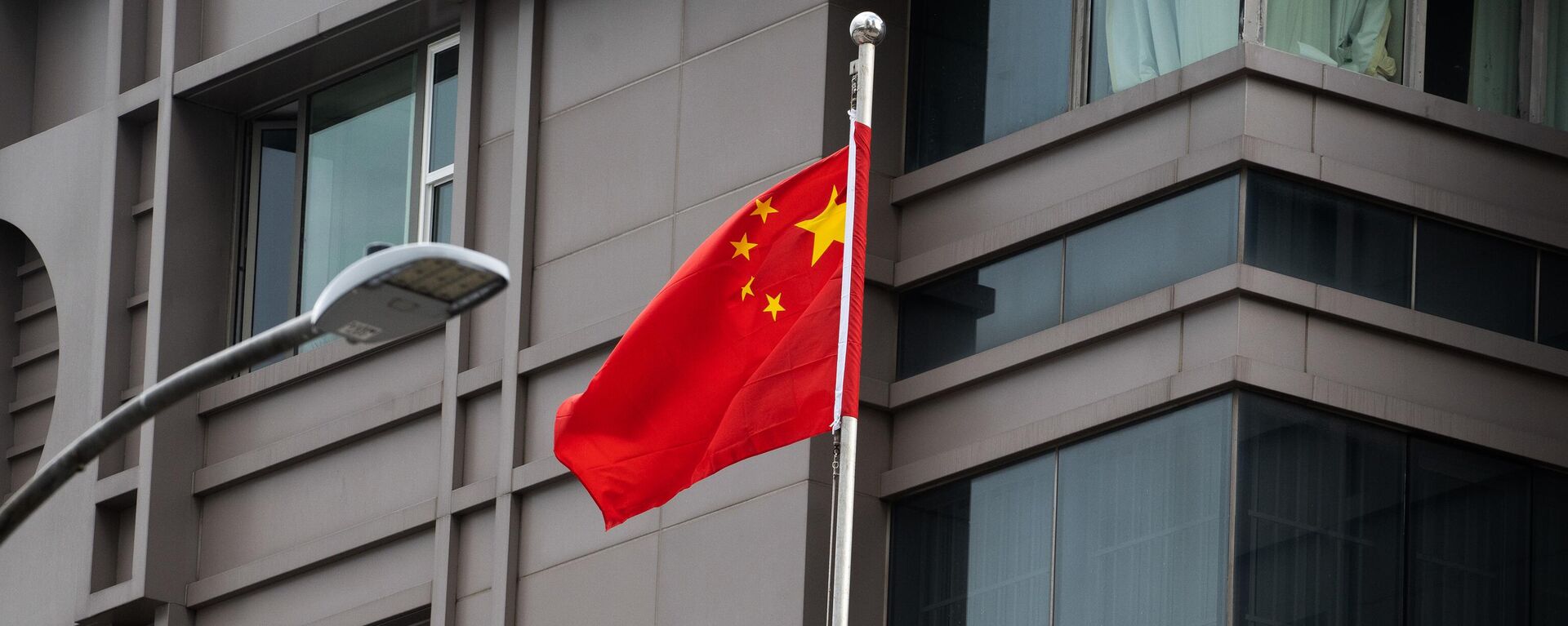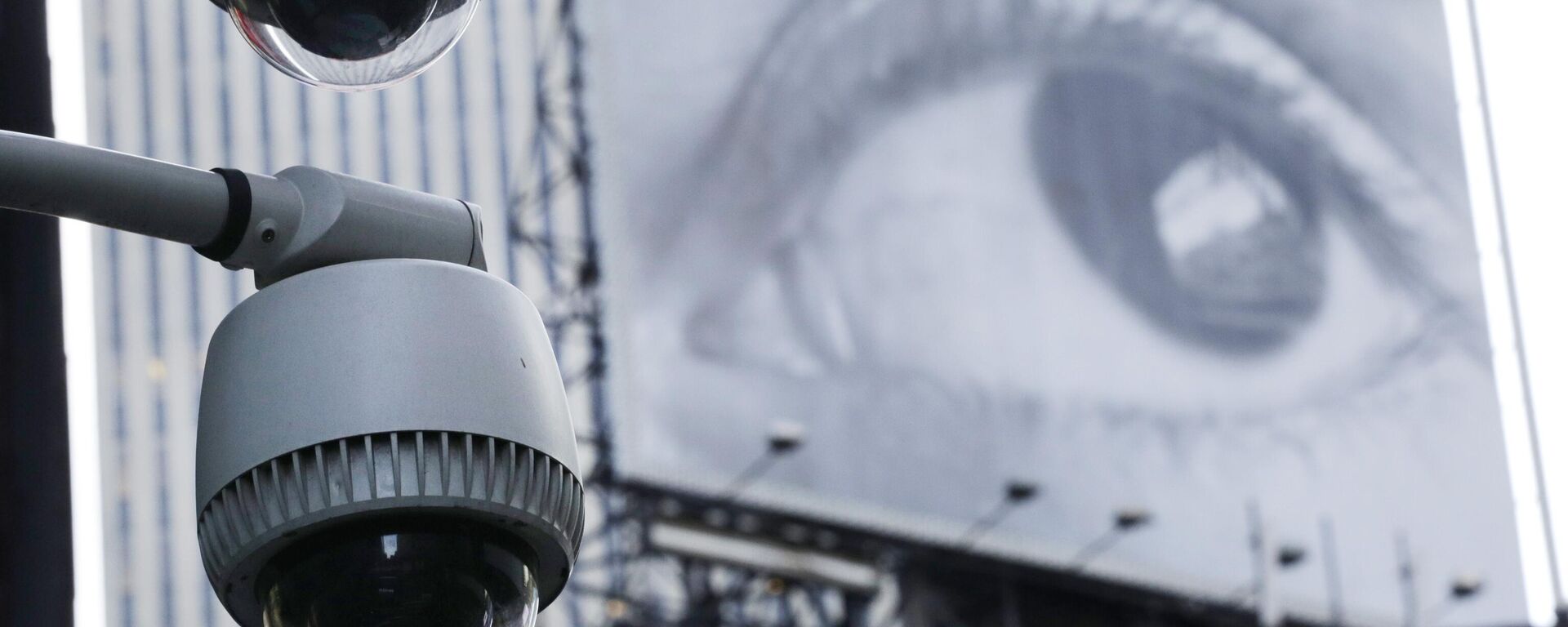https://sputnikglobe.com/20240420/fbi-claim-of-chinese-plot-to-wreak-havoc-on-us-infrastructure-designed-to-ramp-up-tensions-1118028433.html
FBI Claim of Chinese Plot to ‘Wreak Havoc’ on US Infrastructure Designed to Ramp Up Tensions
FBI Claim of Chinese Plot to ‘Wreak Havoc’ on US Infrastructure Designed to Ramp Up Tensions
Sputnik International
America’s premier domestic intel agency has been on a years-long quest to implicate China for every imaginable kind of computer crime, from hacking and the theft of patents to monitoring Americans’ private communications. Beijing has dismissed the claims, accusing the US “empire of hackers” is trying to shift the blame for its own activities.
2024-04-20T13:36+0000
2024-04-20T13:36+0000
2024-04-20T13:36+0000
americas
christopher wray
us
americans
china
beijing
federal bureau of investigation (fbi)
fbi
foreign ministry
https://cdn1.img.sputnikglobe.com/img/07e8/04/11/1117970446_0:0:2952:1660_1920x0_80_0_0_a8ce629081e96f112b6f65a8cb9795d7.jpg
Federal Bureau of Investigation director Christopher Wray's claims this week that the People’s Republic of China is working on capabilities “to physically wreak havoc” on US critical infrastructure “at a time of its choosing” are an attempt to distract Americans from pressing domestic problems, the upcoming elections and efforts by Beijing to restore relations, Su Xiaohui, deputy director of the Institute of American Studies at the China Institute of International Affairs, has told Sputnik.Secondly, Su noted, efforts by the FBI, the NSA and other US intelligence agencies to accuse China of plotting attacks on American infrastructure in connection with the Taiwan issue is designed to "further inflate the 'China threat' theory," which is meant to undermine diplomatic efforts to deescalate tensions, including through Chinese President Xi Jinping's trip to San Francisco in November, and a planned trip to China by Secretary Blinken next week.Speaking at an event hosted by Vanderbilt University in Nashville, Tennessee earlier this week, Wray alleged that Chinese hackers have already infiltrated US infrastructure using botnets (networks of compromised computers and servers) and are waiting for “just the right moment to deal a devastating blow.”China hit out against US claims regarding Volt Typhoon earlier this week, with a Foreign Ministry spokesperson saying Typhoon Volt was a criminal ransomware gang with no ties to the Chinese government.The FBI director’s comments are the second time since January that he has accused China of cyber aggression. In January, he similarly alleged that “China’s hackers are positioning on American infrastructure in preparation to wreak havoc and cause real-world harm to American citizens and communities, if or when China decides the time has come to strike.”The US Treasury Department slapped indictments and sanctions on Chinese hackers accused of a “sweeping espionage campaign” against the US in late March.Since he became FBI director in 2017, Wray has been on a personal mission to shift the agency’s focus away from terrorism toward China. The FBI chief boasted in 2021 that the agency was opening a new China-related investigation “every 10 hours” and that their number runs into the thousands.Chinese officials and media have laced into Wray’s “groundless” China cyberattack threat claims, accusing the US intelligence community of looking to maximize its own power and ability to spy on allies and Americans while conjuring up a Chinese bogeyman.Wang said China’s cybersecurity services have observed regular US attempts to infiltrate Chinese critical infrastructure.
https://sputnikglobe.com/20240416/volt-typhoon-fake-narrative-collusion-among-us-politicians-intel-to-cheat-funding-defame-china-1117960990.html
https://sputnikglobe.com/20240418/surveillance-panopticon-grows-more-powerful-with-attempted-tiktok-ban-backdoors-1117987163.html
americas
china
beijing
Sputnik International
feedback@sputniknews.com
+74956456601
MIA „Rosiya Segodnya“
2024
News
en_EN
Sputnik International
feedback@sputniknews.com
+74956456601
MIA „Rosiya Segodnya“
Sputnik International
feedback@sputniknews.com
+74956456601
MIA „Rosiya Segodnya“
is china hacking us infrastructure, who is hacking who, can critical infrastructure be hacked
is china hacking us infrastructure, who is hacking who, can critical infrastructure be hacked
FBI Claim of Chinese Plot to ‘Wreak Havoc’ on US Infrastructure Designed to Ramp Up Tensions
America’s premier domestic intel agency has been on a years-long quest to implicate China for every imaginable kind of computer crime, from hacking and the theft of patents to monitoring Americans’ private communications. Beijing has dismissed the claims, accusing the US “empire of hackers” is trying to shift the blame for its own activities.
Federal Bureau of Investigation director Christopher Wray's claims this week that the People’s Republic of China is working on capabilities “to physically wreak havoc” on US critical infrastructure “at a time of its choosing” are an attempt to distract Americans from pressing domestic problems, the upcoming elections and efforts by Beijing to restore relations, Su Xiaohui, deputy director of the Institute of American Studies at the China Institute of International Affairs, has told Sputnik.
"Firstly, when domestic problems arise in the US, blame-shifting is the common practice. The issue of cyber threats attributed to China is no exception, with claims made that the source of attacks has been identified and a response needed," Su said. "Especially during a major election year, this kind of 'threat identification' can be used to justify certain domestic policies."
Secondly, Su noted, efforts by the FBI, the NSA and other US intelligence agencies to accuse China of plotting attacks on American infrastructure in connection with the Taiwan issue is designed to "further inflate the 'China threat' theory," which is meant to undermine diplomatic efforts to deescalate tensions, including through Chinese President Xi Jinping's trip to San Francisco in November, and a planned trip to China by Secretary Blinken next week.
This "double standard" of talking about cooperation with China while ramping up claims about a Chinese cyberthreat "may be an attempt at 'political balancing', from the American point of view, but may negatively affect the restoration of relations between China and the United States and increase uncertainty in ties between the countries," Su said.
Speaking at an event hosted by Vanderbilt University in Nashville, Tennessee earlier this week, Wray
alleged that Chinese hackers have already infiltrated US infrastructure using botnets (networks of compromised computers and servers) and are waiting for “just the right moment to deal a devastating blow.”
“Its plan is to land low blows against civilian infrastructure to try to induce panic,” Wray said, pointing to an FBI probe into a hacking campaign dubbed ‘Volt Typhoon’, which is already said to have infiltrated critical energy, water, pipeline networks and telecoms services.
Wray suggested that China’s cyber “pre-positioning” in US critical infrastructure was part of a wider strategy to prevent the US from being able to “defend” Taiwan in the event of an escalation over the Chinese breakaway province.
China hit out against US claims regarding Volt Typhoon earlier this week, with a Foreign Ministry spokesperson saying Typhoon Volt was a criminal ransomware gang with no ties to the Chinese government.
The FBI director’s comments are the second time since January that he has accused China of cyber aggression. In January, he similarly alleged that “China’s hackers are positioning on American infrastructure in preparation to wreak havoc and cause real-world harm to American citizens and communities, if or when China decides the time has come to strike.”
The US Treasury Department
slapped indictments and sanctions on Chinese hackers accused of a “sweeping espionage campaign” against the US in late March.
Since he became FBI director in 2017, Wray has been on a personal mission to shift the agency’s focus away from terrorism toward China. The FBI chief
boasted in 2021 that the agency was opening a new China-related investigation “every 10 hours” and that their number runs into the thousands.
Chinese officials and media have laced into Wray’s “groundless” China cyberattack threat claims,
accusing the US intelligence community of looking to maximize its own power and ability to spy on allies and Americans while
conjuring up a Chinese bogeyman.
“Without valid evidence, the US jumped to an unwarranted conclusion and made groundless accusations against China. It is extremely irresponsible and a complete distortion of facts,” Foreign Ministry spokesperson Wang Wenbin said in February, responding to Wray’s remarks at the time. “The US itself is the origin and the biggest perpetrator of cyberattacks. The US Cyber Force Command openly declared that the critical infrastructure of other countries is a legitimate target for US cyberattacks.”
Wang said China’s cybersecurity services have observed regular US attempts to infiltrate Chinese critical infrastructure.







